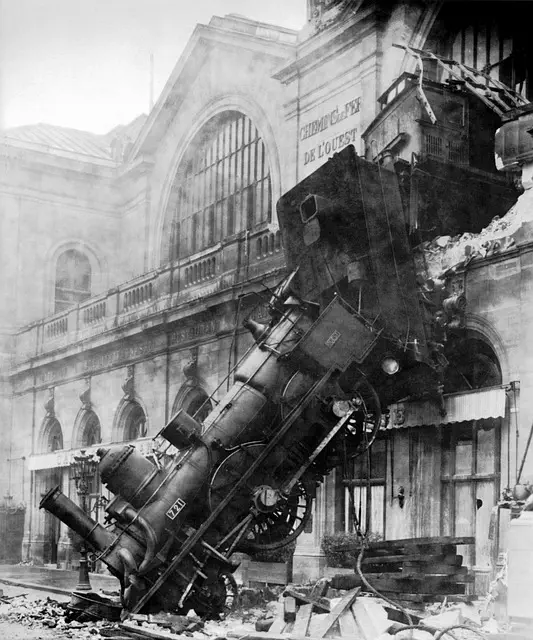Trucking liability in The Bronx is a complex, regulated area where businesses must navigate dense urban transportation networks and adhere to stringent NYSDOT and FMCSA regulations to ensure safety. Adherence to rules on cargo securing, weight restrictions, hours-of-service, and incident response is crucial for risk mitigation and financial protection against liability claims from damage, loss, or accidents involving other vehicles or pedestrians. Best practices include regular vehicle maintenance, driver training, robust communication systems, a culture of safety, and detailed record-keeping to substantially reduce trucking liability and enhance community safety.
In the dynamic landscape of The Bronx, trucking companies navigate complex legal terrain, with liability being a paramount concern. This article delves into the intricate world of trucking liability, exploring the unique challenges and regulatory framework specific to this vibrant city. From understanding key legal provisions to deciphering common risk areas, we provide insights for Bronx-based trucking businesses to mitigate potential liabilities. By embracing best practices, operators can ensure compliance and foster a safer, more responsible industry.
- Understanding Trucking Company Liability in The Bronx
- Legal Framework and Regulations Governing Trucking Operations
- Common Types of Liability for Trucking Companies
- Mitigating Risks and Best Practices for Bronx-Based Trucking Businesses
Understanding Trucking Company Liability in The Bronx

Trucking company liability in The Bronx is a complex legal landscape that businesses and individuals navigating the region’s bustling transportation networks must understand. With heavy goods vehicles (HGVs) frequently traversing city streets and highways, ensuring safety and accountability is paramount. The Bronx’s dense urban environment presents unique challenges for trucking operations, from navigating tight corners to managing traffic congestion, all while adhering to stringent regulatory frameworks.
The liability of trucking companies extends beyond simple vehicle maintenance and driver training. It encompasses a wide range of responsibilities, including proper cargo securing, adherence to weight restrictions, compliance with hours-of-service regulations, and response to incidents such as accidents or cargo damage. In the event of legal disputes, courts in The Bronx consider factors like company policies, driver experience, and evidence of negligence to apportion fault and determine compensation for victims.
Legal Framework and Regulations Governing Trucking Operations

In the dynamic landscape of trucking in The Bronx, understanding the legal framework and regulations governing operations is paramount for businesses aiming to navigate this sector smoothly. The New York State Department of Transportation (NYSDOT) sets and enforces standards that dictate everything from vehicle maintenance to driver qualifications. Compliance with these rules not only ensures safety but also shields companies from potential legal repercussions, especially in cases involving Trucking Liability The Bronx.
Key regulations include those pertaining to hours-of-service, cargo securement, and weight restrictions. Companies must also adhere to federal guidelines established by the Federal Motor Carrier Safety Administration (FMCSA) to avoid penalties and maintain a positive public image. These comprehensive rules are designed to foster a culture of responsibility within the trucking industry, emphasizing safety as a top priority for both operators and regulators alike.
Common Types of Liability for Trucking Companies

In the competitive landscape of trucking in The Bronx, understanding liability is paramount for any company aiming to operate successfully and maintain a positive reputation. Common types of liability for trucking companies include financial responsibility for cargo damage or loss during transit, often covered through insurance policies designed to protect both the carrier and the shipper. Additionally, these businesses are held accountable for accidents caused by their vehicles, whether involving other trucks, passenger cars, or pedestrians. This can lead to legal repercussions, including compensation for injuries or property damage.
Beyond financial obligations, trucking companies in The Bronx must also consider liability related to employee actions and vehicle maintenance. Employers are responsible for ensuring the safety and competence of drivers through regular training and adherence to labor laws. Regular inspection and upkeep of trucks are essential to prevent mechanical failures that could lead to accidents. Thus, a robust risk management strategy encompassing these areas is crucial for any trucking operation aiming to navigate The Bronx’s competitive and regulated environment seamlessly.
Mitigating Risks and Best Practices for Bronx-Based Trucking Businesses

To mitigate risks and ensure the safety of operations, Bronx-based trucking businesses should adopt best practices that go beyond compliance with regulations. This includes regular vehicle maintenance to prevent mechanical failures that could lead to accidents, as well as driver training programs focused on defensive driving techniques and awareness of local traffic patterns. Implementing robust communication systems allows for real-time tracking of vehicles and drivers, enhancing response times in case of emergencies.
Additionally, these companies should foster a culture of safety by encouraging open dialogue about potential hazards and near-miss incidents. Keeping detailed records of maintenance, training, and incident reports enables continuous improvement and identifies recurring issues that may indicate broader systemic problems. By embracing these best practices, Bronx trucking businesses can significantly reduce their liability risks while contributing to the overall safety of the community.
Trucking companies operating in The Bronx must navigate a complex web of liability issues. By understanding the legal framework, recognizing common types of liability, and adopting best practices, businesses can mitigate risks effectively. This ensures not only compliance with regulations but also protects their operations and reputation in the competitive Bronx market. Awareness and proactive measures are key to success in this sector, ensuring trucking companies can safely and responsibly manage their responsibilities.
